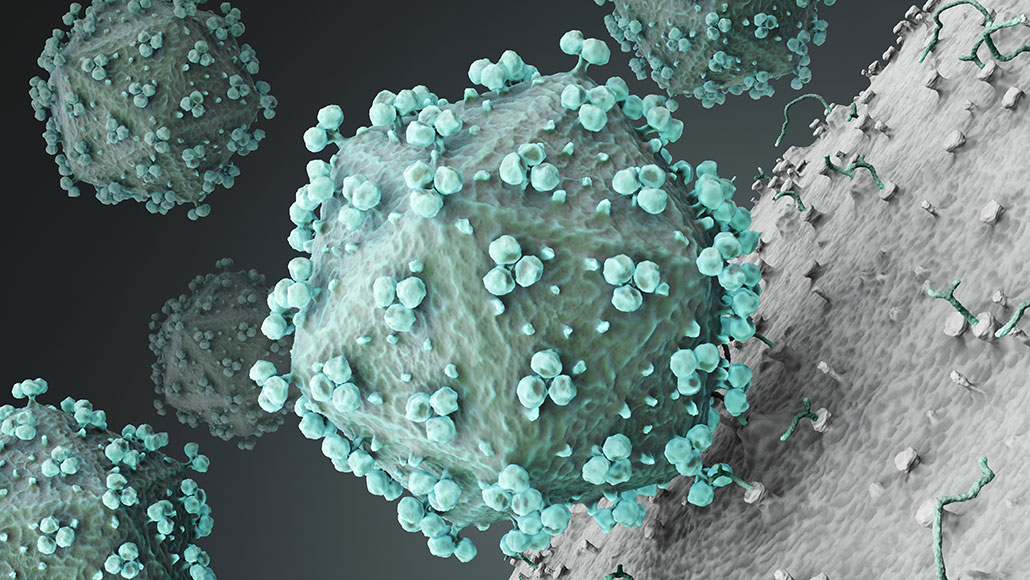An experimental HIV vaccine failed a key trial in South Africa
The vaccine did not reduce the risk of being infected with the virus that causes AIDS

Participants in a clinical trial testing an experimental vaccine against the human immunodeficiency virus, shown in blue, did not see a reduced risk of infection compared with those on placebo.
martynowi.cz/Shutterstock







